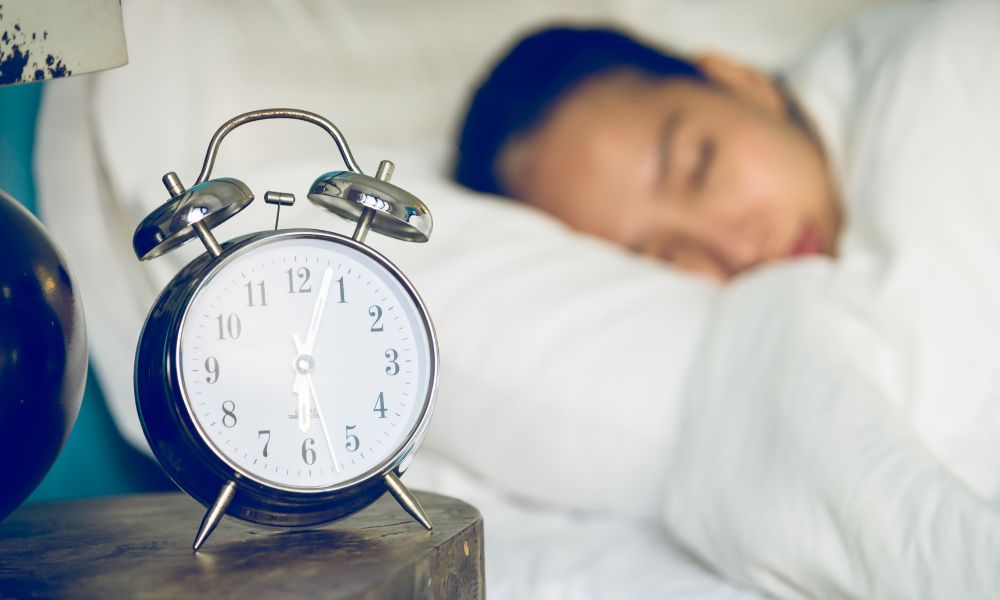Best Time to Sleep According to Ayurveda for Deep, Restorative Rest

In Ayurveda, sleep (Nidra) is not just a daily necessity—it's one of the three pillars of health, alongside Ahara (diet) and Vihara (daily routine).
Quality sleep supports healing, boosts mental clarity, and balances your Vata, Pitta, and Kapha doshas. Without proper rest, both your mind and body can suffer, leading to fatigue, poor immunity, and emotional imbalance.
Best Time to Sleep According to Ayurveda: Ayurvedic sleep routine
The best time to sleep according to Ayurveda is before 10 PM. This is when Kapha dosha dominates (6 PM to 10 PM), bringing a natural heaviness and drowsiness. Sleeping during this phase leads to deep, restorative sleep.
According to Ayurveda, the best time to sleep is when your body is in sync with nature's cycle.
Best Time to Wake Up: Rise by 6 AM
Ayurveda recommends waking up during Vata time (2 AM to 6 AM), ideally by 6 AM. This is when the mind is naturally alert, light, and fresh. Rising early also promotes digestive health and emotional clarity.
Best Time to Sleep and Wake Up According to Ayurveda
| Time of Day | Dominant Dosha | Ayurvedic Recommendation |
|---|---|---|
| 6 PM – 10 PM | Kapha | Ideal time to wind down & sleep |
| 10 PM – 2 AM | Pitta | Avoid staying up, may cause restlessness |
| 2 AM – 6 AM | Vata | Ideal time to wake up & start day |
Aligning your sleep schedule with nature improves energy, digestion, and peace of mind.
Understanding Sleep by Dosha Type
- Vata Sleep Type: Light, interrupted, and may struggle with insomnia.
- Pitta Sleep Type: Intense dreams, shorter sleep, sensitive to heat and mental overstimulation.
- Kapha Sleep Type: Deep and long sleep, but may feel groggy if oversleeping.
Balancing your dosha can improve your sleep naturally.
Is Daytime Sleep Good in Ayurveda?
Ayurveda usually discourages daytime sleep (Divaswapna) as it can imbalance Kapha and slow down digestion.
However, day sleep is allowed in certain conditions:
✅ For:
- Children
- The elderly
- The sick or physically exhausted
- During extremely hot summers (to balance Pitta)
❌ Avoid if you:
- Are obese
- Have Kapha dominance
- Experience sluggish digestion
A short 20-minute nap in summer can help cool down the body.
7 Ayurvedic Tips for Deep, Rejuvenating Sleep
- Follow a fixed schedule: Sleep and wake up at the same time daily.
- Create a calming evening routine: Meditate, read or listen to soft music.
- Use herbal aids: Take Ashwagandha, Brahmi, or Jatamansi for better relaxation.
- Drink warm milk with nutmeg: A time-tested remedy for restful sleep.
- Massage your feet before bed: Apply warm sesame or Brahmi oil for grounding.
- Avoid screens at night: Blue light disturbs melatonin and natural rhythms.
- Eat light at dinner: Avoid heavy meals after sunset.
How Much Sleep Do You Need? (Age-wise Duration)
According to modern science and Ayurveda:
| Age Group | Sleep Needed per Day |
|---|---|
| Newborns (0–3 months) | 14–17 hours |
| Infants (4–11 months) | 12–15 hours |
| Toddlers (1–2 years) | 11–14 hours |
| Preschoolers (3–5 years) | 10–13 hours |
| School Children (6–13) | 9–11 hours |
| Teenagers (14–17) | 8–10 hours |
| Adults (18–60 years) | 7–9 hours |
| Seniors (60+ years) | 6–7 hours + short nap |
Final Thoughts from Nisarga Herbs
At Nisarga Herbs, we believe good sleep is the root of good health. By syncing your routine with nature and understanding your unique constitution, you can sleep better, feel better, and live a fuller life.
Try Ayurvedic herbs like Ashwagandha or Brahmi to support natural sleep. Follow nature’s wisdom. Begin with your bedtime.
References
FAQ
Question 1: Why is sleep important in Ayurveda?
It rejuvenates your body, balances doshas, improves immunity, and sharpens the mind.
Question 2: What is the best time to sleep and wake up according to Ayurveda?
Sleep by 10 PM and wake by 6 AM to align with doshic rhythms.
Question 3: How does my dosha affect my sleep?
Each dosha type—Vata, Pitta, Kapha—impacts sleep quality and patterns differently.
Question 4: Is daytime sleep harmful?
It’s discouraged unless you're a child, sick, elderly, or it's summer.
Question 5: How to improve sleep using Ayurveda?
Adopt herbs, maintain a calming routine, avoid gadgets, and keep dinner light.
Question 6: How much sleep do I need?
Adults need 7–8 hours. Children and teens need more. Seniors may sleep less with short naps.
Question 7: Can Ayurveda help with insomnia?
Yes, through dosha balancing, herbal remedies, and proper lifestyle changes.


 Mental Wellness
Mental Wellness
 Vital Organ Wellness
Vital Organ Wellness
 Skin Wellness
Skin Wellness
 Immunity Wellness
Immunity Wellness
 Sexual Health
Sexual Health
 Bones Wellness
Bones Wellness
 Daily Wellness
Daily Wellness
 Kids Wellness
Kids Wellness
 Diabetes Wellness
Diabetes Wellness



